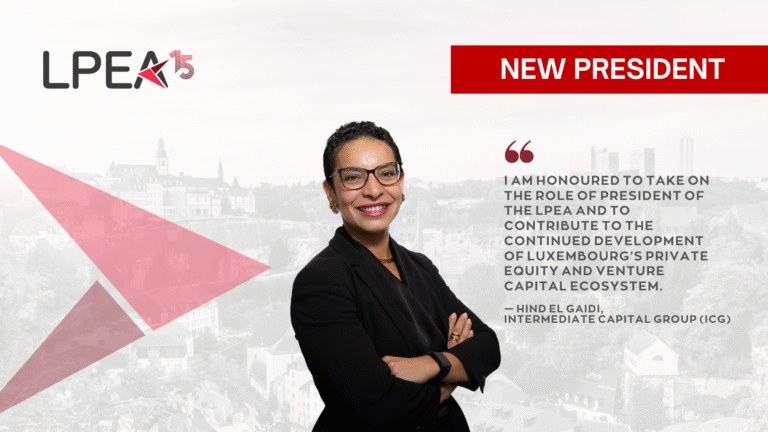By Pierre Beissel
Partner, Arendt & Medernach
WE’RE NEARLY THERE… WHO WOULD HAVE THOUGHT THAT WE WOULD ONE DAY HOPE FOR BREXIT TO ACTUALLY HAPPEN? AT THIS STAGE INDEED, WE REALLY WANT TO MOVE ON! WHATEVER THE OUTCOME OF THE ONGOING NEGOTIATIONS, IT IS CLEAR THAT THERE WILL BE NO DEAL WITH RESPECT TO FINANCIAL SERVICES. FOR ALTERNATIVE MANAGERS, THAT MEANS LOSING THE MANAGEMENT/MARKETING PASSPORTS. WE HAVE KNOWN THIS FOR A WHILE AND HAVE BEEN PREPARING TO THE BEST EXTENT POSSIBLE… ALBEIT SOME MORE THAN OTHERS.
Where are UK managers standing at this stage? How has the Luxembourg ecosystem adapted so far? How friendly has the regulator been? How will this all look as of 1 January 2021?
No disruptive impact on managing Lux funds post Brexit for UK managers
Over the past few years, the main concern for UK managers has been to be able to continue to manage their Luxembourg (or Irish) funds from London post Brexit. In Luxembourg, the regulator quickly gave comfort to UK managers in this respect by confirming that they will be able to continue to manage their Luxembourg AIFs with their UK/non-EU AIFM post 31 December 2020 if they receive the required consent to do so
from their investors (who must all be professional investors). In practice and so far, we have seen no issues coming from investors in this respect. Indeed, the protection that was guaranteed to them in an AIFMD-compliant fund will be maintained post Brexit as the UK manager will continue to run its fund in exactly the same manner, with the same guarantees and protections being granted to its investors. For those UK managers who want to continue to rely on the management passport, we have seen the following trends arising, depending on profile:
- Large(r) UK AIFMs: most of them were already well equipped with AIFMs up and running in one or several EU jurisdiction(s), most often in Luxembourg: preparatory work has been ongoing over the past few years prepare for a smooth transition without major disruption to report. On the marketing side, they have had the capacity to deploy their sales team over different EU branches thereby not impacting their marketing models.
- Mid-market UK AIFMs: a lot of back and forth depending on how much substance they already had in Luxembourg (via funds or SPVs mainly). Most of them already had some significant operations in Luxembourg. They decided to beef up their substance by setting-up a Luxembourg AIFM which allows them to continue to run their activity without disruption.
- Smaller / first-time fund UK managers: investing in the required substance in Luxembourg (human resources and infrastructure) has been very challenging and in most cases, impossible. Instead, they have relied on the third party AIFM model which has been tried and tested already.
OVER THE PAST FEW YEARS, THE MAIN CONCERN FOR UK MANAGERS HAS BEEN
TO BE ABLE TO CONTINUE TO MANAGE
THEIR LUXEMBOURG (OR IRISH) FUNDS FROM LONDON POST BREXIT.
Pierre Beissel
Continue to rely on the robust delegation model
Regardless of the above set-ups, UK-based managers will continue, as ever, to rely on the delegation model whereby the portfolio management is delegated by the Luxembourg AIFM to the UK team. And this delegation model is here to stay.
We have surely seen and continue to see increased substance requirements being imposed by regulators throughout the EU. This was reiterated by ESMA in its opinion letter of 18 August 2020. Some have read ESMA’s letter like a challenge to the delegation model. We certainly do not see it this way. Instead, we believe that ESMA’s point reflects what the market has already well understood and acted upon while planning for Brexit: it is no longer about making sure that all functions “stay” in London but instead about making sure that more and more operational substance is built-in in the EU in general.
The Luxembourg regulator has confirmed this position on a couple of occasions recently; the delegation model has always been working efficiently with a benefit to all players. And “if it ain’t broke, don’t fix it”.
Some planning remains to be done for the marketing functions
As for the management passport, the marketing passport of UK AIFMs will disappear post Brexit. This gets a bit tricky as marketing teams tend to be based in London, flying in and out to market investors throughout the EU.
Post Brexit, UK AIFMs will have a few options in terms of marketing models:
- Rely on private placement rules available to non- EU AIFMs (which we know can be tricky in some EU countries).
- Stay outside the scope of regulated “marketing” activities; this means monitoring closely what type of activity is carried out, making sure that it is not regulated neither from a UK perspective nor from a target country perspective.
- For those who have a Luxembourg AIFM, they may “piggyback” on its marketing passport through secondments, chaperoning, dual employment contracts, GP-led marketing,… Whichever model is ultimately chosen, all such dual-hatting functions must be implemented with care (tax and labour law considerations must also be kept in mind).
And overall, let’s not neglect the cultural dimension…
While Brexit planning has been mainly about limiting disruption when managing and marketing EU funds, we believe that the interaction between the Luxembourg and UK teams should not be underestimated to ensure a perennial strategy.
In most cases, we have indeed seen UK managers adding substance through the addition of members of staff in their Luxembourg office. That comes with an additional challenge: the integration of the Lux-based individual/team with the UK headquarter / firm culture. Managers who invest in nurturing that relationship will most often succeed in achieving a perennial post-Brexit strategy. This is a challenging task as it would not be realistic to have UK team members relocate to Luxembourg on a systematic basis.
However, we do tend to see more and more relocations to Luxembourg recently. Indeed, most London teams in the alternative space are composed of members from all over Europe. Should one such member happen to have (close) links to the Luxembourg region in one way or the other, that can be a win-win situation. At the same time as boosting the substance/qualifications of the Luxembourg office, he/she would also “bring” along the firm culture and play a key role in making sure that the Luxembourg team forms an entire part of the firm more globally.
This does not represent the majority of the cases obviously but it is surely worth looking into when planning for more substance in Luxembourg. Many will say that it is impossible to attract people/families to Luxembourg because it does not offer the same breadth of resources as the London scene. We shall not disagree with this statement of facts obviously; but we would respectfully ask the readers to reconsider! Life in Luxembourg is full of resources and offers a lifestyle like no other. This, combined with unlimited carrier opportunities in the alternative investment space merits further investigation… You may well have some volunteers within your teams in London who would be very much willing to make the move when looking at the combined professional and personal package … We’ll say no more!




